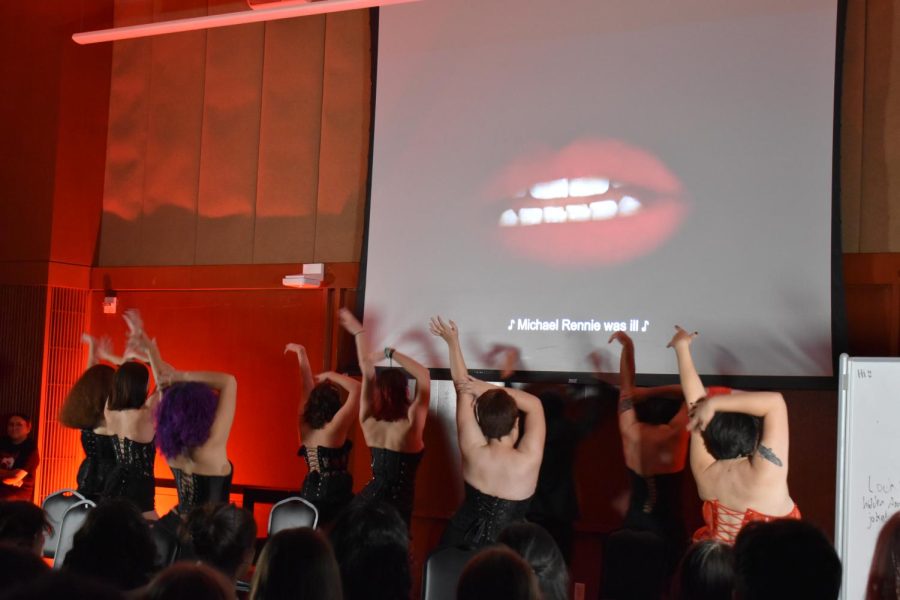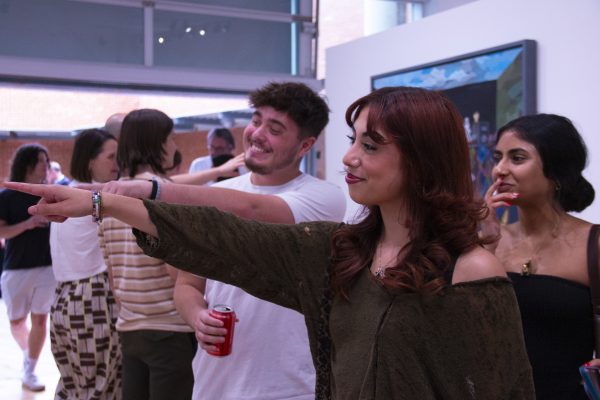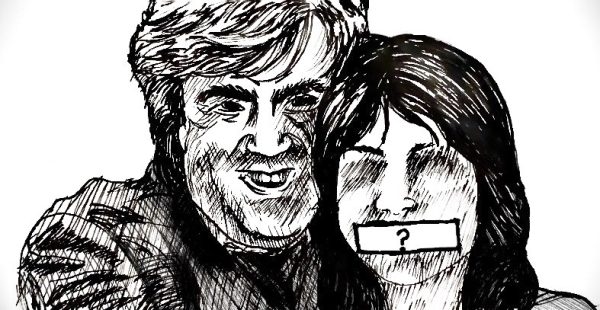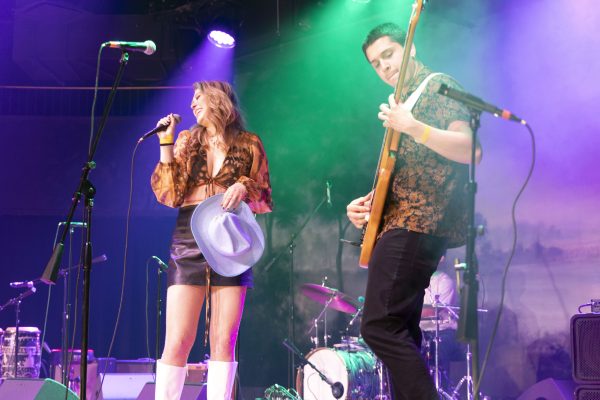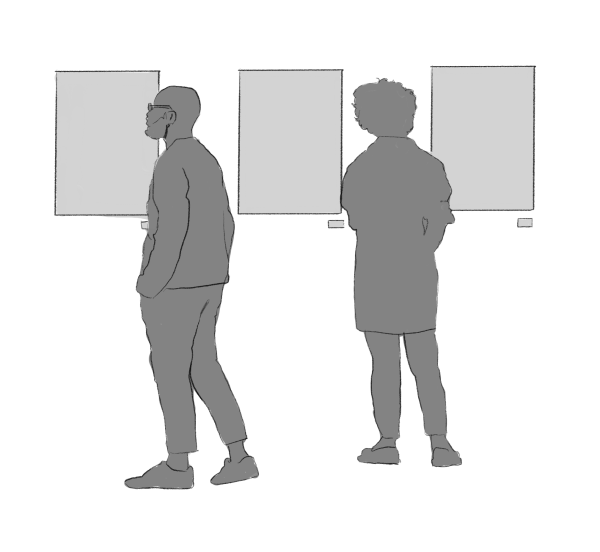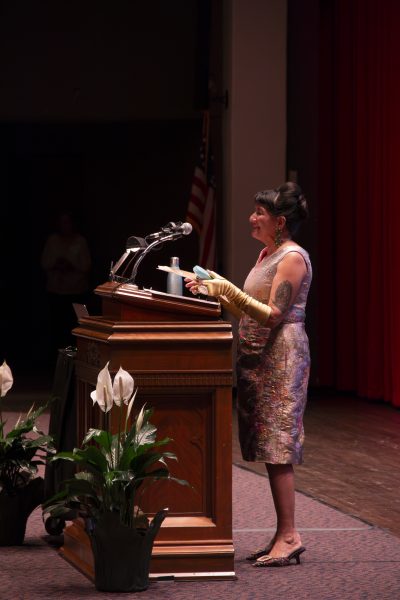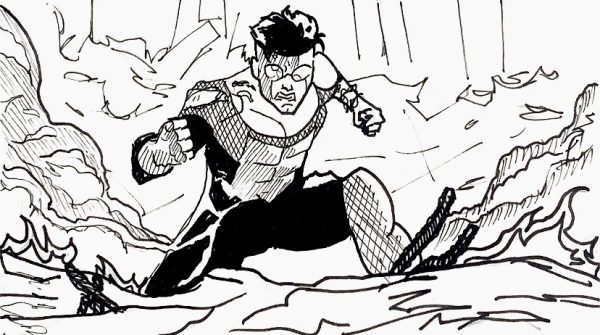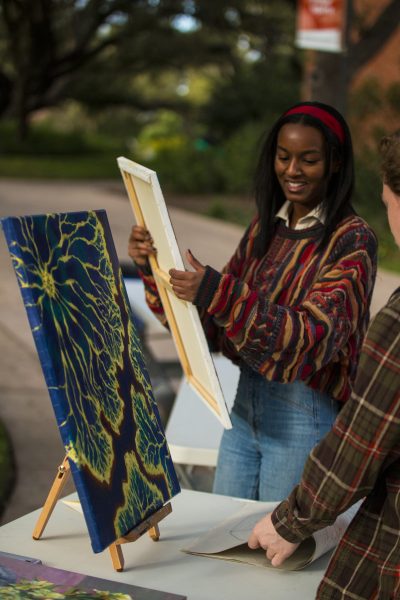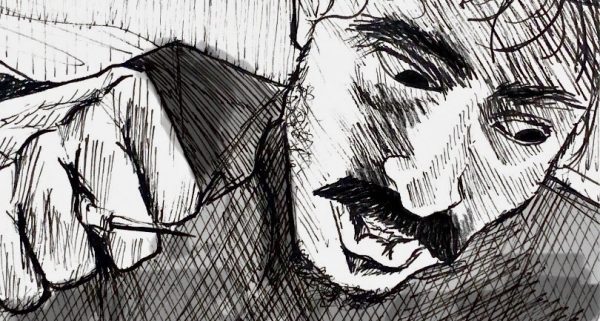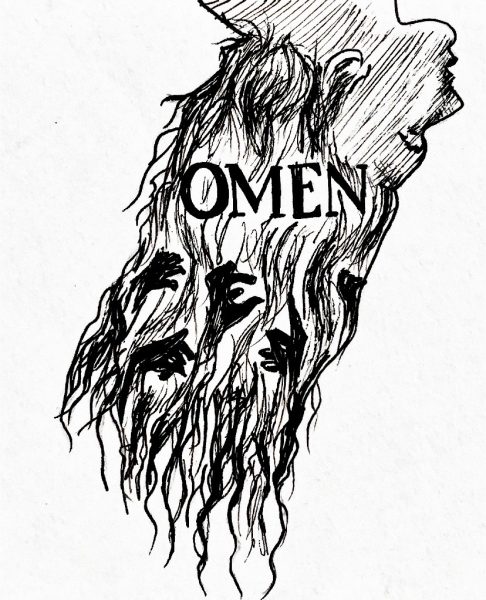“Rocky Horror Picture Show,” the place where moaning and elbow sex are permitted
The show allows people to let loose and be themselves while prioritizing health and safety
The “chair dance” of the Trinity University Players (TUPS) production of “Rocky Horror Picture Show”
“Rocky Horror Picture Show” is known for being sexy, disarming, dangerous and downright dirty. The production is a shadow cast, meaning that while the movie is going on, actors mimic onscreen characters’ actions and dialogue onstage. Another part of the show includes audience participation or callouts. Callouts are things that the audience is aware of. A QR code was included at the beginning of the show for audience members to view the list of callouts. For example, immediately after one of the characters in the movie says, “science fiction,” audience members call out, “FYE,” referring to the first-year experience course of the same name. Although, this show definitely requires a preface regarding some of its content — particularly a warning about possibly outdated and crude language.
The shadow cast started with an introduction by Juliana Martinez, senior English major and production stage manager for this year’s production of “Rocky Horror Picture Show,” produced by Trinity University Players (TUPS) on Oct. 28 and 29.
“It’s a ton of fun, but anyone who is going to be watching this show, for everyone’s peace of mind and mental health, should know going into it that there [is] violence, sex, scenes with dubious consent, cannibalism, incest, murder — all kinds of things happening,” Martinez said.
Nicolas Diaz, a senior computer science major and theater minor, explained the ways audience members can refuse participation, such as crossing one’s arms to make an “X.”
“There [were] seats marked out for audience interaction. Even if you sit there, we do have a system of refusing but … sitting in the aisle or front seat does increase your chance of getting a lap dance,” Diaz said.
“Rocky” is known for its openly sexy nature and dubious content. Robin Bernal, sophomore religion major and English minor, described how they felt when performing sexy and provocative scenes.
“I don’t mind because it’s theater. … We’ve had a lot of conversations about everyone doing only what they want to. Nobody should feel any pressure to do anything they don’t want to. It’s known as this provocative show, [but] you don’t have to be provocative,” Bernal said.
Martinez discussed the impact of outdated languages, such as the term “transvestite” in the song “Sweet Transvestite.” She also discussed the importance of acknowledging it to unpack the film’s meaning in today’s context, as well as the technical necessity for its use.
“In any production, you are not allowed to make specific changes to the script without explicit permission from the writer or the estate. … [we made] sure at the beginning [that] we have that warning of the outdated and sometimes harmful language that happens in this movie,” Martinez said.
To Martinez, it is necessary to acknowledge harmful words rather than to pretend the use of these words in a derogatory context did not take place.
“I also think there’s something really interesting in the concept of not doing something like that or pretending that that’s not part of the show. [It] is the same as pretending that that piece of history doesn’t exist, and it does. … I know I spoke to the fact that this movie has meant a lot to a specific community of people and one of those is the [LGBTQ] community, and that words like that can be harmful, but in this context, there’s no pretending that they never existed. So for us, it’s just a matter of making sure … everyone knows … what they are getting into,” Martinez said.
Martinez acknowledged this but still made a point to highlight the role “The Rocky Horror Picture Show” plays beyond Trinity.
“The Rocky Horror Picture Show is a huge tradition that exists in other universities and I mean in other theaters, in drag shows, there are all these places you can go. … There is a pre-existing culture we are participating in when we do this,” Martinez said.

Hi! I am a freshman and my major and minor are undeclared as of now. As an Arts and
Entertainment Reporter, I am passionate about exploring restaurants...
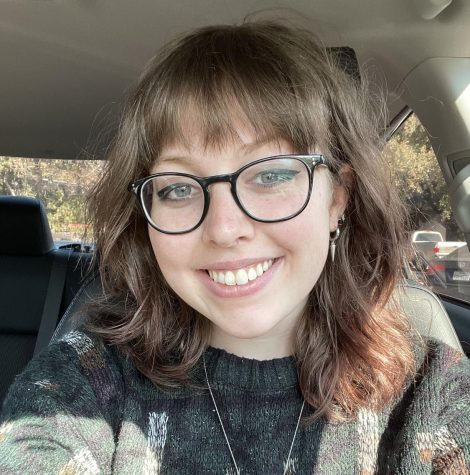
My name is Claire Sammons and I am an Anthropology and Communications double major. I have worked for the Trinitonian since fall of 2020. I became a photographer...

